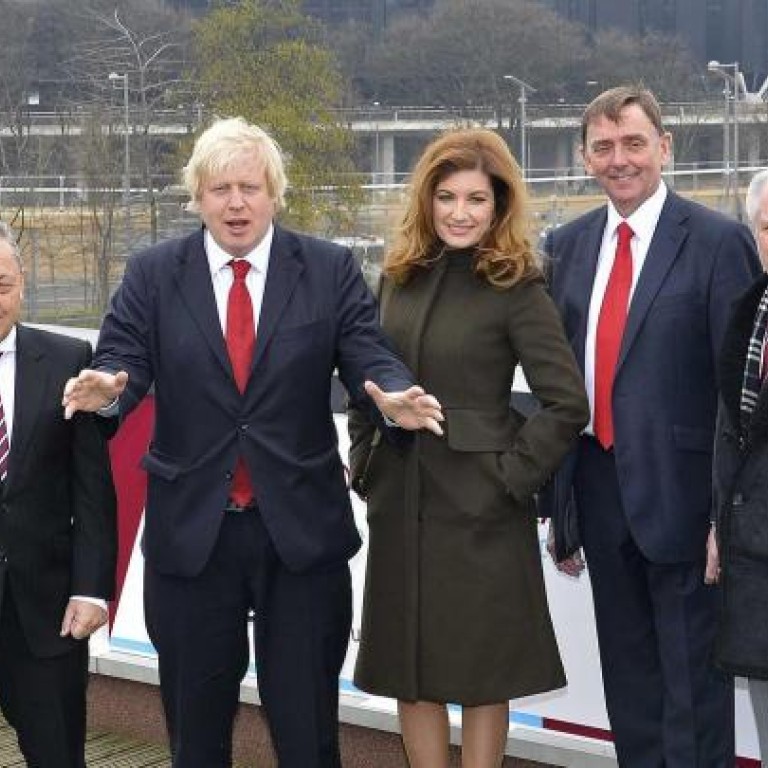
Fun and Games for new Olympic tenant West Ham
Club secures deal of century to move into Olympic stadium and taxpayers should be thankful there will be no white elephant
Bubbles feature prominently on the terraces of Upton Park in east London, the home of West Ham United. Hammers fans sing about forever blowing the spherical globules and a special machine bellows thousands of the suds into the air at the start of every game.
And today expect copious amounts of bubbly corks to join the bubble squadrons when the Hammers kick off against West Brom. This week the 120-year-old claret and blue club was handed the keys to their new home - the London 2012 Olympic Stadium to where they will move in 2016.
By British standards, the sealing of this historic deal was done in remarkably quick time and ensures the centrepiece to Britain's glorious summer of sport seven months ago will not suffer the same fate as most Olympic stadiums.
Such edifices quickly fall into disrepair and become ghost arenas, burning vast amounts of money to maintain and make secure - huge hungry white elephants that quickly become an unnecessary drain on resources, as cities from Athens to Sydney testify.
Even the iconic Bird's Nest in Beijing - the proud centrepiece of a nation on the rise - looks forlorn and unloved because it enjoys only ad hoc employment as a Segway circuit, winter wonderland theme park and host to the occasional football game and athletics meet.
So you would think allowing West Ham to take over the running of the stadium and ensuring it will be used on a near weekly basis would be met with loud applause. Instead, howls of protests drowned out most of the jubilation.
First, there's the almost give-away price that grates. West Ham will hand over just £15 million (HK$176 million) for a 99-year lease on the £429 million stadium and will pay just £2 million a year in rent - a bargain of the century if ever there was one.
Then there is the conversion cost that could reach £190 million. The roof is to be extended and the seating capacity reduced from 80,000 to between 54,000 and 60,000.
A retractable seating system will allow the venue to be converted from a football stadium to an athletics arena within days; the seats will slide back and forth over the running track and ensure fans are closer to the action on match days.
The tab will be picked up by taxpayers, so little wonder many are calling the stadium the most expensive council tenancy in the land.
To others it is not so much the public cost but the prospect of 60,000 mainly males gnashing their teeth in the seats and the facade decked out in garish claret and blue and other sponsored branding that exasperates. Such cheapening is tantamount to a desecration of the country's "newest and most holy sporting place", claimed one critic.
And who can blame some clubs muttering in protest about West Ham's unfair advantage in boosting their match-day revenues and tapping an angry finger on the league's new financial fair play rules?
London mayor Boris Johnson, who can dig his way out of a tight corner faster than an excavator in an Inner Mongolian mine, defended the deal with his usual exuberance.
"It's a deal they said could never be done," he boasted. "This fantastic stadium will not only host community sports, but rock concerts, athletics like the Diamond League this summer, all sorts of sports where the ball is not necessarily spherical."
He's right. The agreement should be applauded and taxpayers thankful they will not be subsidising a leviathan wastrel. Indeed, the income from rent, hospitality and naming rights will be "very, very substantial".
So what's not to like?
One concern is whether West Ham will be capable of filling a venue almost double the size of their 30,000-seat Upton Park. But club owners David Gold and David Sullivan have agreed to pay a one-off windfall back to the taxpayers in the event they sell the club in the next 10 years.
Plenty of plans were laid on the table for London's stadium, though none were seen as viable. UK Athletics and League Two London club Leyton Orient put in bids, but both lacked the potential earning power of a London-based EPL side.
The stadium could have been adapted at a fraction of the cost if it had been built with a post-Games switch to football in mind. But the London 2012 delivery team, Sebastian Coe & Co, ruled out football playing a part in the post-Games scenario when plans for the stadium were drawn up in 2006-07.
Pleas to include retractable seating like the Stade de France in Paris were ignored.
"This is the biggest mistake of the Olympics and lessons should be learned from this," said former government sports minister Richard Caborn, among those lobbying for a retractable model.
Stadium planners the world over take heed - and make football their default end game.

